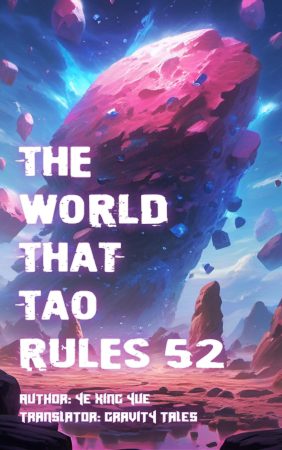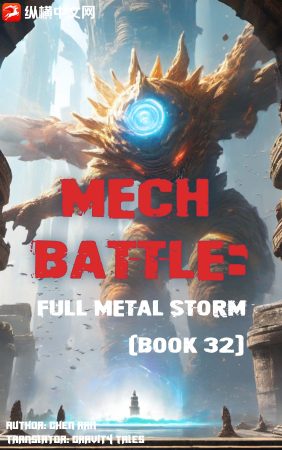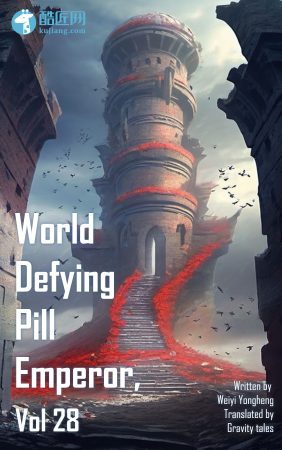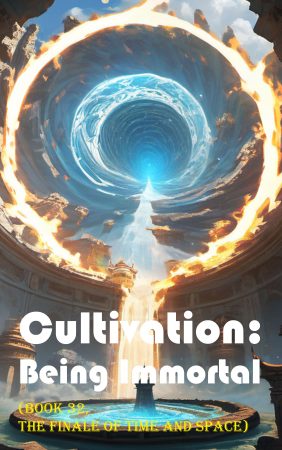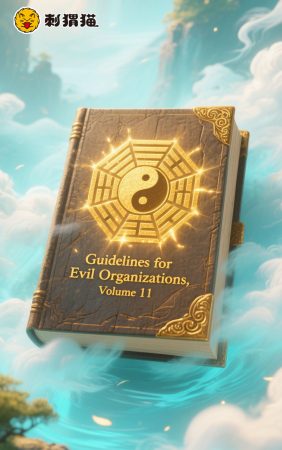Chapter 6
Our Discord Server: https://discord.gg/PazjBDkTmW
You can buy coins here to unlock advanced chapters: https://gravitytales.com/coins-purchase-page/
Chapter 6: Food is the Foundation of Life
Chu Junguei wasn’t far from the escape pod and quickly reached it. He opened the panel inside the pod, pulled down the emergency breathing mask, and began inhaling oxygen. After about a few minutes, he set down the breathing mask, coughed forcefully, and finally spat out a pool of yellowish-green water.
Clearing harmful substances from the lungs was an ability possessed by every human who had completed basic survival training—the only difference was the extent of the cleansing.
Of course, someone like Chu Junguei who could clear all sulfur-containing harmful substances in one go was beyond what basic survival training could achieve—even advanced survival training couldn’t accomplish this.
After cleansing his body, Chu Junguei thought for a moment, then found a breathing mask, removed the oxygen supply component, and wore it on his face. Though the mask couldn’t supply oxygen, it had filtering capabilities that could filter out most harmful substances from the air. This way, Chu Junguei could stay away from the escape pod for longer periods—at least extending his activity time to about half a day before needing to return and replace the filter.
However, there were only two spare filters remaining before supplies would run out.
Chu Junguei reactivated the printer, inserted all remaining metal rods and carbon rods, then selected the primary refinery from the blueprints. But the screen showed insufficient materials to print the complete refinery.
This didn’t stump Chu Junguei—having mastered the complete basic survival skill system, he knew the refinery’s structure inside and out. He simply activated the printer’s advanced editing function and modified the refinery blueprint, removing the input funnel and crushing device, as well as the output molding section.
What remained was only the core components of the primary refinery, greatly reducing material requirements.
The printer reactivated, and within minutes the refinery’s core section appeared before Chu Junguei. This was a machine about the size of an ordinary microwave, with its core being a multi-function matter separation furnace that could switch between several modes depending on the input materials.
Chu Junguei returned to the forest, cut a section of tree trunk, collected some highly acidic tree sap, then returned to the escape pod. He cut several wooden boards from the tree bark, assembled them together as input components, then used his dagger to carve several cups and wooden troughs to serve as output molding sections.
As for grinding, he simply completed it manually—finding two large stones, placing the pyrrhotite chunks on the large stone, and smashing them into fine pieces. He then mixed the crushed powder with tree sap and placed it in the refinery. Finally, he inserted a polymer battery as the power source.
The refinery was a major energy consumer—even a high-energy polymer battery could only support continuous operation for one hour.
Chu Junguei activated the refinery, and moments later collected two full cups of basic industrial acid, primarily sulfuric acid. After extracting the acid from the input materials, he switched modes, and moments later had several additional metal rods primarily composed of iron.
Though these metal rods were somewhat rough, after Chu Junguei trimmed them with his dagger, they could barely be used in the printer. With materials available, his first task was naturally to create the refinery’s input and output sections, giving him a complete matter refinery without the current hassles.
With raw materials available, the next step was solving the power source problem.
Fortunately, when Deep Space Energy manufactured the universal matter printer, they fully considered the possibility of material acquisition and processing difficulty requirements, providing blueprints for ancient lead-acid batteries. Chu Junguei already had sulfuric acid—he just needed to find some lead to create batteries.
Though lead-acid batteries were far less energy-efficient than polymer batteries, when surviving on an unfamiliar planet, the most important thing was first solving the problem of availability.
However, since he had found pyrrhotite, there was a certain possibility of finding lead. Even without lead, he could first create stellar energy panels and a charger to repeatedly charge and reuse the two polymer batteries—it would just be more troublesome.
Stellar energy panels were much easier—he could randomly find some stones and throw them into the refinery to obtain plenty of silicon and aluminum. Throwing these materials into the printer, within moments Chu Junguei had created four stellar energy panels and a charger. After completing these items, the polymer batteries in both the refinery and printer had only small amounts of power remaining.
He couldn’t help but complain internally: ‘Expecting to survive with just these meager supplies?’ However, he also knew that every gram of weight that could be carried in an escape pod was extremely precious, and basic food and water absolutely couldn’t be omitted. Adding the printer itself, there was basically no excess weight allocation.
The storm had long since stopped, and this unnamed planet’s sun hung high in the sky. Under the sunlight, the surrounding temperature had risen to 60 degrees. Fortunately, the travel suit Chu Junguei wore also functioned as a space suit, keeping the scorching heat at bay.
Chu Junguei assembled the stellar energy panels together, adjusted the angle to maximize sunlight reception, then connected the charger and placed the two polymer batteries in it before heading back to the forest for exploration.
This time Chu Junguei went much deeper, advancing several kilometers before beginning his return. His backpack was already stuffed with various discoveries: several barely edible tree fruits, two small beasts, a bundle of sodium-rich plants, and then a wooden bucket of tree sap.
However, he still hadn’t found a water source.
In the forest, Chu Junguei used his arm shield as a shovel and dug ten meters underground without seeing any water seepage—the soil only became slightly more moist. During the digging process, he discovered that many large trees had unexpectedly deep root systems. This indicated that the groundwater depth was probably far beyond expectations, so he stopped digging and instead collected a large bucket of tree sap to bring back.
By the time he returned to the escape pod, the sky was beginning to darken.
Chu Junguei leaned against the escape pod hull and used stones to build a fire pit in the sheltered area, lighting a campfire.
This planet’s climate was extreme even among habitable planets—as soon as the sky darkened, temperatures began dropping rapidly. Before it had been dark long, there was already a hint of chill in the air.
However, having a campfire brought much peace of mind.
The polymer batteries were fully charged, and with power in hand, Chu Junguei felt confident. With plenty of basic metals remaining, he simply printed an iron grating, mounted it on both ends over the campfire to create a grill. He then skinned and deboned the three small beasts he had hunted, cleaned their organs, skewered them with iron spits, and began roasting them over the fire.
Before long, the small beasts were roasted to a golden brown. However, what emerged wasn’t an appetizing aroma, but a pungent, irritating smell.
Chu Junguei tried taking a bite, frowned, and nearly spat it all out. The meat was both sour and astringent, with a burning sensation that left his mouth full of fiery pain.
This planet had an unusually high sulfur content, so even the branches and vegetation contained large amounts of sulfur. Roasting these small beasts over the fire was equivalent to smoking them with sulfur fumes—it would be strange if they tasted good.
However, though unpalatable, the meat was still edible. Scan results showed that fat, moisture, and protein content were all reasonably high. As for the sulfur from smoking, this small amount couldn’t trouble Chu Junguei’s digestive system. As a test subject, though Chu Junguei’s body structure wasn’t different from ordinary humans, the strength and function of each organ far exceeded normal humans.
He frowned and swallowed the roasted meat in large bites, finally simply turning off his taste function temporarily to avoid vomiting.
Previously, as a test subject, he would never vomit due to bad taste—only to clear toxic substances from his stomach. Now wanting to vomit was basically due to psychological factors.
Emotions were beginning to affect his body—this seemed to be Chu Junguei’s new weakness, and also a common flaw shared by all humans.
He didn’t know whether this was good or bad, but from current appearances, humans naturally had various flaws, far from being as efficient and perfect as test subjects.
A full five pounds of roasted meat quickly went down Chu Junguei’s throat. His powerful stomach not only crushed food but also had primary compression functions, so his abdomen remained flat with only slight bulging.
Chu Junguei patted his stomach—he could only say he was barely half full. He needed large amounts of energy to maintain this body’s consumption, with basic daily requirements exceeding 15,000 calories. Only ordinary humans who were professionally trained athletes or career warriors who had completed deep space training series could compare.
He felt somewhat troubled—compared to humans’ complex and inefficient digestive processes, directly using external energy sources seemed better. For instance, creating an interface on the body and plugging in a nuclear fusion battery would solve everything, wouldn’t it?
But the mechanical structures within his body were actually pitifully few. Only several data interfaces and some micro-chips scattered throughout his body counted as foreign implants.
In this era, various auxiliary chips had become widely popular in middle and upper human society, and many in the lower classes could also implant chips. Related fields of chip design, manufacturing, and even maintenance and updates each had several major corporations entrenched for years, with scale and volume no less than giants like Deep Space Energy.
To some extent, the total implants in his body might not even match those of a bottom-tier worker.
He wondered what considerations led his creators to load him with so few implants, instead relying on powerful organs and physique.
With the food problem solved, next came water. Chu Junguei used most of a polymer battery’s power to decompose a bucket of tree sap into concentrated acid and pure water using the refinery.
Though the separated pure water was only one large cup, it solved the urgent need. However, energy consumption was somewhat high—Chu Junguei’s daily solar energy collection could only fully charge the two batteries twice.


